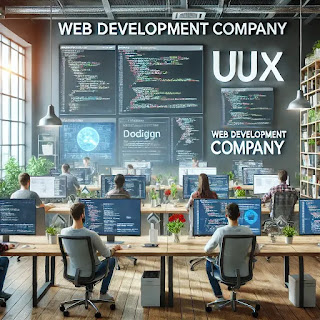Developing E-Commerce Sites for B2B vs B2C: Key Differences
In the digital age, having a robust e-commerce platform is crucial for any business looking to grow online. However, the development of e-commerce websites varies significantly depending on whether the target audience is business-to-business (B2B) or business-to-consumer (B2C). Understanding these differences can help you choose the right Ecommerce website development company in Bangalore to create a tailored solution for your business.
1. Target Audience and User Experience
B2B e-commerce platforms are designed for wholesalers, manufacturers, or other businesses. The focus is often on functionality, custom pricing, bulk ordering, and detailed product specs. In contrast, B2C sites are aimed at the general public, prioritizing sleek design, emotional appeal, and a smooth, quick checkout process.
An expert Ecommerce web design company in Bangalore will consider user personas, customer journeys, and UI/UX design elements differently for each model, ensuring that the platform meets specific audience needs.
2. Buying Process Complexity
The B2B buying cycle is usually longer and involves multiple stakeholders, requiring features like multi-user accounts, approval workflows, and purchase orders. B2C purchases are more impulsive and immediate, so the focus shifts toward user-friendly navigation, fast page loads, and quick checkout.
A skilled Ecommerce development company in Bangalore will incorporate these structural and functional nuances into the site architecture for optimal performance.
3. Pricing and Personalization
B2B pricing is often negotiated and can vary depending on client contracts, quantities, or purchase history. Therefore, dynamic pricing engines, quote requests, and customer-specific catalogs are essential. B2C pricing is more straightforward but may include discounts, promotional codes, and flash sales.
With the help of a professional Ecommerce web development company in Bangalore, you can implement advanced pricing strategies to handle complex pricing structures effectively.
4. Integration and Scalability
B2B platforms often require integration with ERP, CRM, and inventory systems for seamless operations. On the other hand, B2C websites might integrate more with marketing tools, chatbots, and social media platforms.
Choosing the right ecommerce website development in Bangalore ensures these integrations are not only functional but scalable as your business grows.
5. Content and SEO Strategy
Content strategies for B2B and B2C also differ. B2B content focuses on education, product specifications, white papers, and case studies. B2C leans toward storytelling, product benefits, and lifestyle content. SEO implementation should reflect this to attract the right traffic to your website.
Partner with the Right Experts
When it comes to creating powerful, scalable, and conversion-focused e-commerce solutions, Webomindapps stands out as a trusted partner. As a leading Ecommerce website development company in Bangalore, Webomindapps has a proven track record in delivering customized B2B and B2C e-commerce platforms. Whether you're looking for sophisticated backend solutions or engaging front-end designs, Webomindapps is the Ecommerce web development company in Bangalore that can help bring your digital vision to life.



Comments
Post a Comment